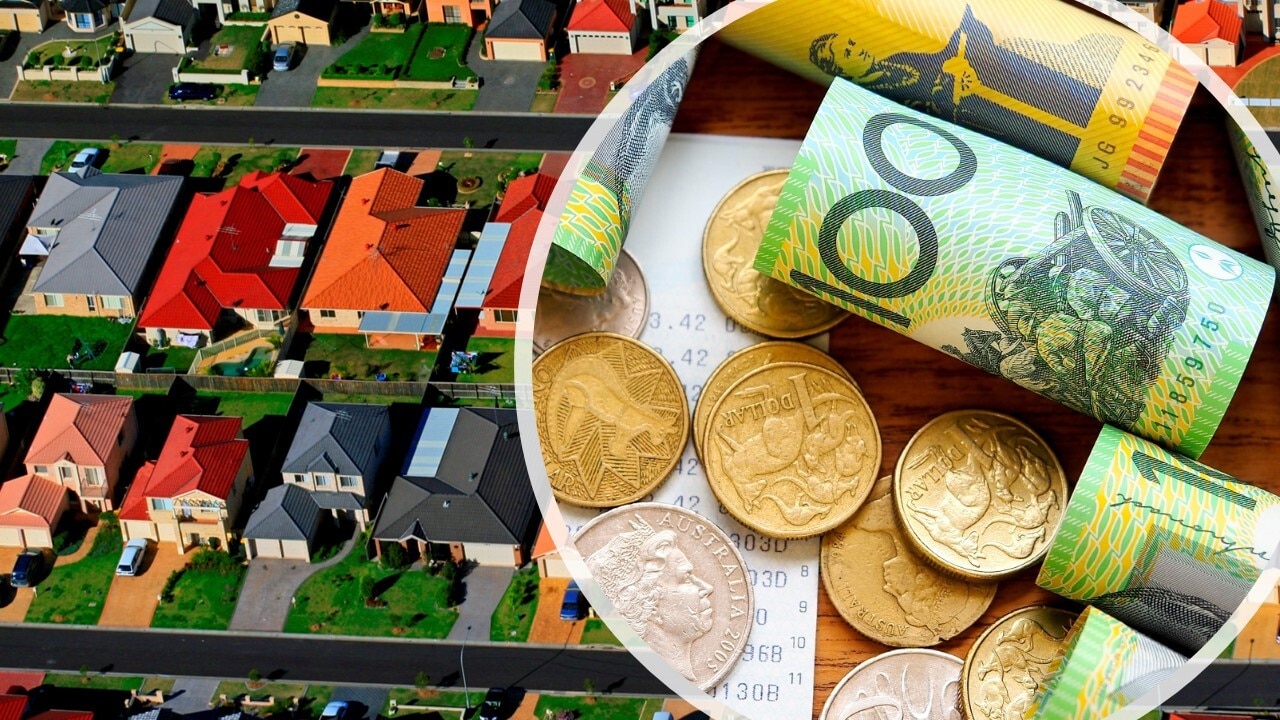Why it's good for Australia if interest rates rise
No one wants to see their mortgage repayments go up but there’s an important reason why Australia can’t keep interest rates low forever.

With many Aussies already under financial stress due to the rising cost of living, some may be wondering why banks are expected to raise interest rates — making mortgages more expensive and increasing the pressure further.
About 42 per cent of Aussie households that have mortgages are already spending more than they earn, according to a report from the University of NSW and analyst Martin North, with around 1.5 million households under pressure.
Naturally many people don’t want to see interest rates rise but economists say if the Reserve Bank of Australia (RBA) do not take action when it’s needed, this could have an even worse outcome.
One of the biggest reasons the RBA may be forced to raise the cash rate is due to inflation.
Inflation, which basically measures the increase in the price of goods and services, is rising partly because the war Ukraine has made petrol more expensive — impacting the prices of other goods and services including food.
Realestate.com.au economist Angus Moore believes the RBA should “look through” the increase to inflation caused by this temporary shock when deciding whether to increase interest rates.
However, AMP Capital chief economist Shane Oliver said while he initially had some sympathy for this view, he now disagrees.
“The problem is that it has been going on for a long time and inflation has gone up even higher,” he said.
He said if the “temporary” disruption to oil supply continues, it may lead to “inflation expectation” and this could actually see prices rising higher and higher.
For example, Mr Oliver said the shortage of oil was pushing prices up, and this would be fine if prices also dropped once the shortage was resolved.
But if oil prices were high and then workers started demanded higher wages because they expected inflation to remain high, this would lead to companies raising their prices to cover the extra wage cost, sparking an endless cycle of increasing prices.
Rising interest rates don't have to deter you from saving for a house deposit. Read Compare Money's tips >

This was seen in the 1960s and 70s when inflation was not brought under control tightly enough.
Mr Oliver said Australia was at the point of needing to control “inflation expectation”.
“Raising interest rates is not going to increase the supply of oil or wheat to the global market, or the supply of fridges or clothes, but it will help keep inflation expectation down,” he said.
When interest rates go up, mortgage repayments increase and so households have less money to spend. This reduces demand for goods and services, helping to keep prices lower.
During the pandemic, Mr Oliver said it made sense to cut interest rates and reduce repayments to give households more money, as people were at risk of losing their income and jobs.
“But the pandemic impact on the economy is fading, there are lots of jobs around, so the question is — do we still need emergency-level interest rates?”
With unemployment at very low levels, there should be enough money around to support businesses, even without record-low interest rates.
“When you raise interest rates, you cut spending in the economy, so it’s really about economic conditions returning to normal and improving. We no longer need big budget spending, or low interest rates,” he said.
Mr Oliver said the longer interest rates stay down, the longer it would fuel spending in the economy.
“When we’ve got inflation, policy makers have to take something away in order to slow spending down,” he said.
“It does appear ‘mean’ but the lesson of the 1970s is that high inflation leads to lower productivity and lower living standards.
“Ultimately it’s best to keep inflation low and under control which is why the RBA is starting to focus more on that.”





